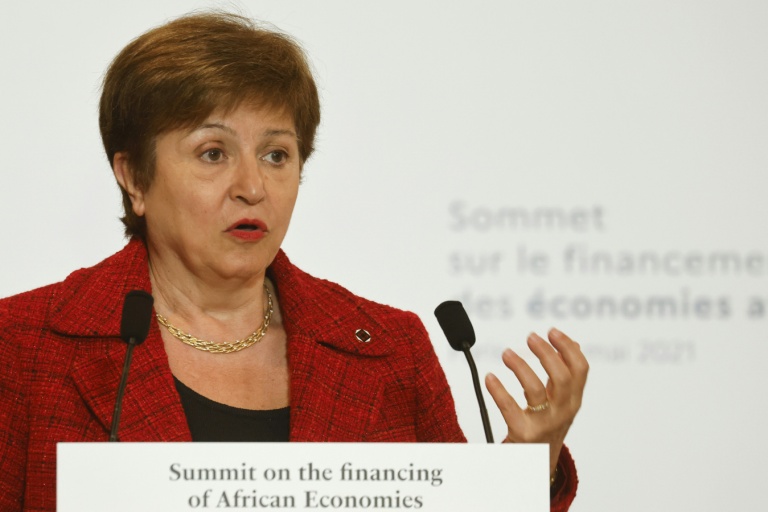Warning the continent faces slower growth, rising debt levels and a shortage of Covid-19 vaccines, IMF Managing Director Kristalina Georgieva on Wednesday appealed for more aid to African countries to help them bounce back from the pandemic.
“Africa is now facing the world’s fastest growth rate for new Covid cases, with an exponential trajectory even more alarming than during the second wave in January,” she said in an address to the African Development Bank’s annual meeting.
“It is a human tragedy — and an economic calamity.”
While the global economy is expected to grow six percent this year, the Washington-based crisis lender forecasts Africa will see only a 3.2 percent expansion, excluding oil-rich Libya.
And while wealthy countries are rolling out Covid-19 vaccines to large shares of their populations, Georgieva said only 0.6 percent of Africa’s adult population has been fully vaccinated.
“The warning signs are clear: a two-track pandemic is leading to a two-track recovery.
Africa is already falling behind in terms of growth prospects,” she said.
Many sub-Saharan African countries had high debt levels before the pandemic, and they’ve risen sharply since Covid-19’s arrival, Georgieva said, climbing “more than six percentage points to 58 percent of GDP, their highest level in almost two decades.”
The region overall was spending 20 percent of its tax revenue on interest, while for some countries the burden was as much as one third of their revenue, she said.
In North Africa, debt rose about 12 percentage points to 88 percent of GDP.
The IMF has proposed a $50 billion plan to vaccinate 40 percent of the world’s population by the end of the year and 60 percent by the end of 2022, which Georgieva said “would be a game changer for Africa.”
She also hailed global agreements to suspend debt payments of poor countries, including Somalia and Sudan, for which the IMF says it has received enough international finance pledges to provide relief.
“Clearly, the best way to deal with debt is for economies to grow,” Georgieva said.
She also called for countries and international financial institutions to follow through on a recent pledge to invest at least $80 billion into the African private sector over the next five years.











